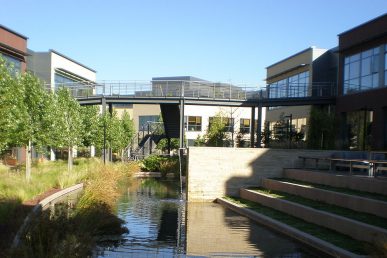Voting is now closed. Stay tuned to find out who wins!
It’s time for the community to determine the winner of the Superuser Award to be presented at the OpenStack Sydney Summit. Based on the community voting, the Superuser Editorial Advisory Board will review the nominees and determine the finalists and overall winner.
Now, it’s your turn.
City Network is among the seven nominees for the Superuser Awards. Review the nomination criteria below, check out the other nominees and rate the nominees before the deadline Wednesday, September 20 at 11:59 p.m. Pacific Time Zone.
Please specify the team and organization for nomination.
City Network’s Operations and DevOps team: Marcus Murwall, Tobias Rydberg, Magnus Bergman, Tobias Johansson, Alexander Roos, Johan Hedberg, Joakim Olsson, Emil Sundstedt, Kriss Andsten, Mattias Nilsson.
How has Openstack transformed the organization’s business?
Shifting to 100% focus on OpenStack has been key to the global expansion of our organization in general and our cloud offerings in particular. With OpenStack and all its features, ease of use and popularity as the catalyst we have added value through multiple data centers in Europe, US, Asia and UAE as well as a clear strategy and implementation for Data protection and regulatory aspects.
With OpenStack we also get the benefit of providing open APIs which prohibits our customers to be locked in with only us as an IaaS provider. It´s easy for the customer to start and easy to leave, as we are convinced that this is a must for all providers in order to stay relevant going forward.
How has the organization participated in or contributed to the OpenStack community?
Our CEO Johan Christenson was recently elected as a member of the OpenStack Foundation Board. His goal is to help the community and the ecosystem to leverage this open platform and drive the transformation for a more open, and future proof IT infrastructure.
In 2016, we initiated and organized the first ever OpenStack Days Nordic event in Stockholm and this year we are once again leading the way to take the event to Copenhagen.
We also participate in the summit user groups public cloud and the security project.
What open source technologies does the organization use in its IT environment?
We are very pro open source and use it every time where open source is a viable option.
A selection of the Open Source technologies we are currently using: CentOS, OpenBSD, Ubuntu, Nginx, Apache, php, Python, Ansible, MySQL, Mariadb, Mongodb and Ceph.
What is the scale of the OpenStack deployment?
We run our public OpenStack based cloud in eight regions across three continents. All of our data centers are interconnected via private networks. Apart from our public cloud, we run a Pan-European cloud for the finance vertical solving all regulatory challenges. Over 2,000 users of our infrastructure-as-a-service (IaaS) solutions run over 10,000 cores in production.
What kind of operational challenges have you overcome during your experience with OpenStack?
Since we are running OpenStack as Public IaaS there have been a lot of hurdles to overcome as OpenStack is not yet fully adapted for public clouds. We had to build our own APIs in order to get network connectivity over several sites to work and also we had to add features such as volume copy and the ability to move volumes between sites. We have also had our fair share of issues with upgrading to new OpenStack versions, however we do feel as this process have been getting better with each upgrade.
How is this team innovating with OpenStack?
We innovate with OpenStack on two main focus areas:
One of them is figuring out how we can interconnect all our OpenStack data centers over a global, private network and all the benefits that comes from doing so—one of which is being able to provide our customers with direct, private access to our cloud services.
The other focus area is helping regulated companies, mainly in the financial and healthcare industries, with their digital transformation and cloud adoption. By building completely separated cloud services compliant with regulations such as ISO 9001, 27001, 27015, 27018, Basel, Solvency and HIPA, we allow for these industries to go cloud with a pay-as-you-go model and be truly agile.
How many Certified OpenStack Administrators (COAs) are on your team?
Three.
- SK Telecom 5GX Cloud Labs wins the 2020 Superuser Awards - October 20, 2020
- Where are they now? Superuser Awards winner: VEXXHOST - August 11, 2020
- Where are they now? Superuser Awards: City Network - June 18, 2020

)










